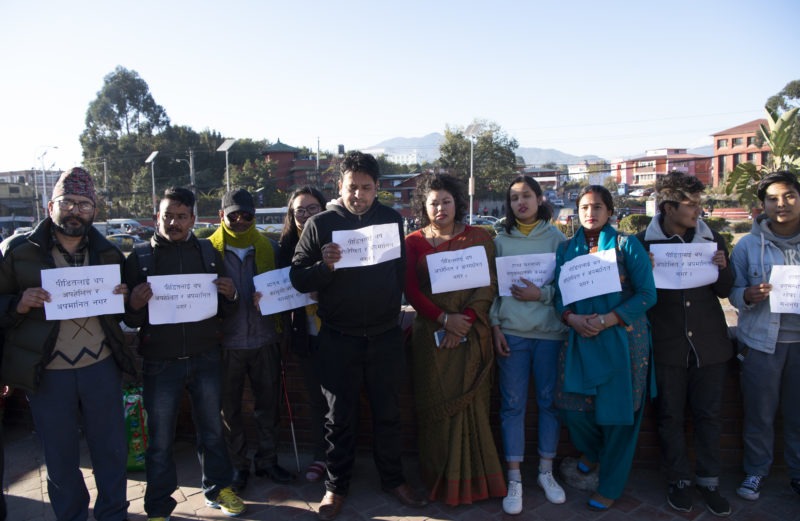Murder accused set to be Nepal’s parliament speaker
A group of protesters held placards opposing the appointment of former Maoist leader Agni Sapkota as Speaker of House of Representative, (PRAKASH MATHEMA)
Kathmandu (AFP) – A former Maoist leader accused of ordering a man’s death during Nepal’s civil war is set to become the speaker of the parliament, officials confirmed Wednesday, sparking criticism from rights activists.
Agni Sapkota, a senior member of the ruling Nepal Communist Party, has faced several hearings in the Supreme Court after a case was lodged against him over the death of Arjun Bahadur Lama.
Sapkota denies any involvement and has not been charged.
Witnesses say Lama was abducted from his village in 2005 by Maoist insurgents and later killed.
More than 17,000 people were killed, 1,300 disappeared and thousands were displaced during the war which ended with a peace deal between Maoist insurgents and government forces in 2006.
Many former rebels now fill the political ranks of Nepal’s ruling party.
Sapkota was the only candidate to put his name forward for the position of speaker after an agreement among senior party leaders.
“The house meeting on Sunday will formally announce his election to the speaker post because he is unopposed,” Parliament Secretariat spokesman Rojnath Pandey told AFP Wednesday.
The speaker’s post has been vacant since October after then-speaker Krishna Bahadur Mahara, also a senior member of the ruling Nepal Communist Party and a former Maoist rebel, stepped down over attempted rape allegations.
Lama’s wife Purnimaya Tamang said Sapkota should be punished for her husband’s death.
“How can someone responsible for the murder of my husband be elected speaker?” Tamang told Republica newspaper.
“How can they appoint a criminal to such a prestigious position?”
Civil and human rights activists on Tuesday issued a statement saying they opposed his candidacy.
“The case has made mockery of (the) rule of law and undermined human rights obligations, and disrespected Purnimaya Lama and other victims struggling for justice,” the statement said.
Despites thousands of complaints, two war crime commissions set up in 2015 have been unable to make progress on a single case, stymied by a lack of funding and political will.
Just two convictions related to civil war-era crimes have been handed down in civilian courts, one linked to the murder of a teenage girl and the other concerning the killing of a journalist.
Disclaimer: Validity of the above story is for 7 Days from original date of publishing. Source: AFP.


